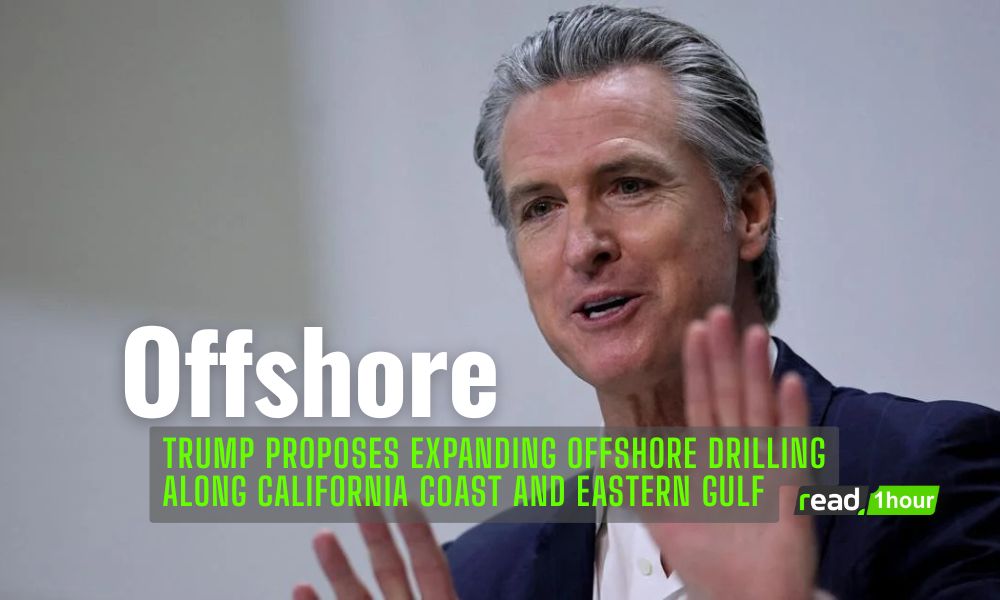Trump Proposes Expanding Offshore Drilling Along California Coast And Eastern Gulf
Trump proposes expanded offshore drilling near California and eastern Gulf, sparking national debate over energy, environment, and coastal safety.
Former President Donald Trump has sparked renewed national debate after proposing a major expansion of offshore oil drilling along the California coastline and in the eastern Gulf of Mexico. The proposal—outlined during a policy speech in Florida—marks one of Trump’s most aggressive energy plans yet, aiming to boost domestic oil production and reduce reliance on foreign energy.

Trump argued that opening these coastal regions to new drilling would create thousands of high-paying jobs, lower energy costs, and strengthen U.S. energy independence. “America has the resources to power its future,” he said. “We will tap into them and bring back American energy dominance.”
However, the proposal immediately drew sharp criticism from environmental groups, coastal communities, and lawmakers across both parties. California leaders called the plan dangerous, warning that offshore drilling poses significant risks to marine life, coastal tourism, and the state’s fragile ecosystem. Many pointed to past oil spills, including the 1969 Santa Barbara disaster, as reminders of how devastating offshore accidents can be.
Environmental organizations such as the Sierra Club and Oceana issued statements condemning the move, saying it would accelerate climate change and undo years of coastal protection progress. “New drilling is a direct threat to our oceans, wildlife, and coastal economies,” said Oceana’s policy director.
The eastern Gulf of Mexico—currently under drilling restrictions—has been a long-standing point of contention. While energy companies have pushed for access to its estimated billions of barrels of untapped oil, states like Florida have resisted, citing tourism, hurricane vulnerability, and the lingering impact of the 2010 Deepwater Horizon spill.
Trump’s plan calls for lifting these restrictions and leasing millions of acres for energy exploration. Supporters within the oil and gas industry welcomed the proposal, saying it could revitalize U.S. output at a time of rising global competition. Industry analysts noted that drilling expansion could increase national oil reserves and lower gasoline prices, although benefits would likely take several years to materialize.
Critics argue that the plan prioritizes short-term economic gains over long-term environmental stability. Coastal property owners and tourism businesses expressed concerns that even a single spill could devastate local economies. California officials stressed that the state will challenge any federal attempts to authorize offshore drilling in its waters.
The proposal is expected to face multiple legal and regulatory hurdles. States have authority over coastal infrastructure, meaning California could refuse to permit pipelines, processing facilities, and transport operations needed for offshore oil extraction. This would make drilling logistically difficult even with federal approval.
As the nation continues its transition toward renewable energy—such as wind, solar, and hydrogen—Trump’s drilling push represents a sharp shift from the Biden administration’s climate policies. Political analysts say the proposal is likely to become a major campaign issue, especially in coastal states where environmental protection remains a high priority.
For now, the debate over offshore drilling is poised to intensify, shaping national conversations about energy security, economic growth, and environmental responsibility.
